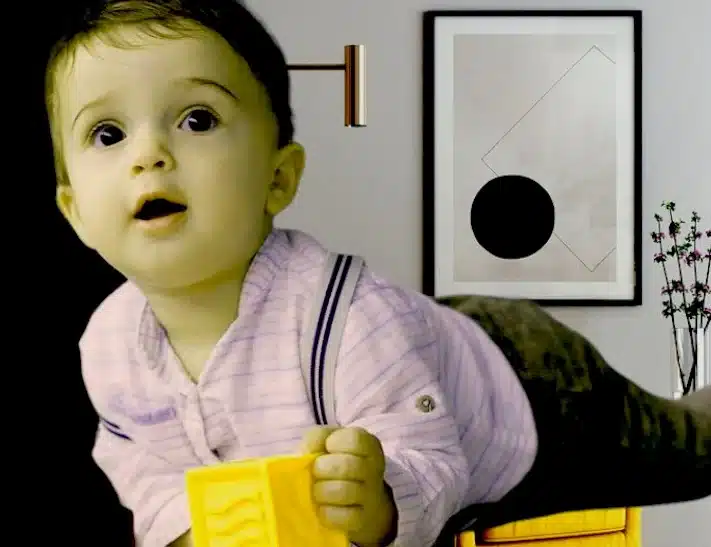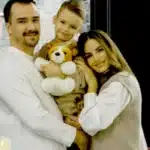Which Happens to A Developing Child First
You know, our brain, which controls our whole body, is only a part not fully developed when a person is born. At birth, the average baby’s Brain is about a quarter the size of the average adult’s. It grows so fast that it doubles in size in its first year & reaches 80% of its adult size by 3 years old and 90%, or almost full size, by age 5. Welcome to our descriptive coverage of Which Happens to A Developing Child First. Have an in-depth look.

When a Man’s sperm fertilises a woman’s egg, it begins the Pregnancy. Since you don’t always know when fertilisation happens, Doctors use the first day of your last period (LMP) to determine if you are pregnant. Your doctor will guess when you will give birth by adding 40 weeks to your LMP. Within weeks 38 & 42, most babies are born. Your doctor may use the baby’s size rather than your gestational age to calculate your due date if you undergo an ultrasound early in your pregnancy.
The embryonic stage is the time after pregnancy when your baby goes through many significant changes. It lasts from the 5th to the 6th week of pregnancy. At this point, the baby is known as an Embryo.
Which Happens to A Developing Child First
During the foetal stage, a lot of changes take place. First, the embryo’s cells, called embryonic stem cells, divide & grow. They turn into the many different kinds of cells that make up the human body. The essential organs, as well as body parts of your baby, start to take shape.
The Brain and spinal cord were the first parts of the body to grow in a baby. This happens about 3–4 weeks after pregnancy. The voice cords get more evident in the last week of the 3rd trimester. In the 26 weeks after conception, the baby’s eyes start to work.
See Childhood Through to Adulthood Literally
When You’re a kid, everything about adult life seems beautiful. When you get older & look back on your life, you realise that being an adult means giving up much of what you were taught in school & at home.
Being honest is no longer the best something to do as an adult. Kindness is no longer the best trait. The selfish take advantage of the good things you do for others. A smile is no longer a smile. You start to understand why you got that Favour & Realise that you must somehow give something back.
You realise that life isn’t a fairy tale & that you can’t make everything you once wanted happen. That Indians can’t become naturalists like the ones you see on Discovery Channel.
Becoming an adult is a symbolic cleaning of the dust from the glass of one’s mind. People often slip and fall, and sometimes they never get back up. Life is a field of roses for one’s younger self, but as an adult, one realizes there will always be barbs.
Windows Of Opportunity Child Development
Which Happens to a Developing Child First: “Windows of Opportunity” are the best learning times for a child. During the first few years of life, a child’s Brain connects about 100 trillion neurons for Social Intelligence, Emotional Control & Thinking Skills.
There are times when growth is most likely to happen in certain places. During these times, you can learn quickly in certain areas. When opportunities arise, the Brain decides to keep some kinds of connections & not links in other areas.
Between 0 & 6 years old, a child is at a critical stage in their growth. During these times, kids work on developing specific skills or pursuing certain hobbies. These times are short-term & end when the goal is reached. Montessori made four groups for the sensitive periods: order, language, sense skills & movement. Recognising & helping a child through these times can significantly affect their development.
Windows of Opportunity only work if there are good things in the child’s surroundings with which they can interact. You must talk with your kid during a language window to help them understand the language better. Or, if you want the kid to be more organised or active as an adult, you ought to motivate them to move & Play games, particularly when gross motor skills are developing. You could teach your child a fresh language during the learning window to help them learn more than one language.
Which Happens to A Developing Child First
A. From the time your child is born till they are about four years old, it is the best time to help them understand and name their feelings. No one is born with a lot of emotional intelligence already formed. Parents and other caretakers must be aware & sensitive to help children develop these skills carefully. These early years, when the Brain is increasing, are crucial for the child’s emotional maturity & ability for the rest of their lives.
B. Vocabulary for Kids Ages 0–7: interact with your kids. And read to them as well. As they grow, their Vocabulary & ability to use language will improve the more they hear language used to understand the world within them.
10 Reasons for Studying Child Development

Recent scientific discoveries have shown that a child’s first six years are crucial for growth.
A. Cultivating Empathy
Starting school early helps kids learn to care for & understand others.
Management of Behaviour: Early schooling helps kids learn good habits & discipline.
Recognising how young children learn: Putting money into early education helps the person & society. They understand how young children learn—studying how children grow & change has many benefits beyond personal growth. By understanding how children learn in their early years, people can significantly affect their lives & society.
B. Helps Find any Trouble Spots Early
When a child goes to preschool, teachers trained in early childhood education can notice any problems with the child’s early growth that could be red flags for learning in the future. They would then suggest professionals for diagnosis & treatment, such as occupational therapy, speech therapy, play therapy, and more.
C. Boost Confidence and Drive
Studying gives you a chance to learn more about yourself.
By doing challenging learning tasks, Students can easily see what they are good at & what they need to improve. Learning about their skills would make them feel better about themselves & boost their morale.
On the other hand, knowing their weaknesses would push them to improve & not make the same errors again.
Which Happens to A Developing Child First
D. Helps a Child’s body grow and develop when young
Your kid has reached significant physical milestones. They’ve gone from seated to crawling, walking & standing. Even more, skills that help their physical growth are taught in early childhood education.
E. Helps the Child get ready to learn
Your child’s Brain acts like a sponge at this age. They love to learn new things & are interested in everything. Using this natural desire to learn through young age education helps build a learning mindset that lasts a person’s whole life.
F. Feelings with your Child
Your bond with your child is the first tie they make with someone else. They watch everything you do and learn from you, and having a good relationship with you helps them get along with other people and make healthy bonds with them. The strength of a connection with each other helps them learn in a setting.
Which Happens to A Developing Child First
G. Helps a Child’s social and Mental growth when Young
Your child will learn necessary social & emotional skills just by being in a place where they have to listen to others, play with others, and set limits. Your child learns skills & completes projects in early childhood education. When they do this, they see they are capable & get praise & encouragement from instructors.
This mental support makes them feel good about themselves & prepares them to learn more. And because preschool is a safe & welcoming place, they can also know it’s okay to feel different feelings and how to show them.
H. Help to Creative
You learn to think outside the box in school, which is an important skill. Having a very competitive learning place would help you think in new ways.
Studying is always an excellent way to get the Brain to develop new ideas.
Most school-related tasks, like telling stories, putting on shows, putting on plays, doing experiments & writing poems, can help students open their minds & learn more about the world, making them more imaginative & creative.
I. Language Skills
Language learning is sped up, which makes people better at communicating.
J. Holistic Development
It encourages healthy Physical, Mental & Emotional Growth.
Which Happens to A Developing Child First Apex
The heart starts beating first in a child who is still growing. The Brain and spinal cord were the first parts of the body to grow in a baby. This happens about 3–4 weeks after pregnancy.
Child Development Vocabulary Words
Which Happens to A Developing Child First: 1 -1 ½ During this time, a toddler’s language grows to about 20 words. 2 When a child is 2, They will know between 200-300 words. When the Kid is 3 years old, They have learned about 900–1,000 words. The average 4-year-old will know between 1,400 -1,500 words.
Many children can say one or two words by 15 months and three or more by 18 months. By two years old, most children can put together two-word sentences. You can be confident they grasp what you communicate even before they say their first words.
Conclusion
Thank YOU for your precious time. We hope you Enjoyed reading about our detailed analysis of “Which Happens to A Developing Child First“. If our post is helpful, like and share it with your loved ones. Wishing you a Happy and Healthy Life!!









13 thoughts on “Which Happens to A Developing Child First: Every Parent Should Know”